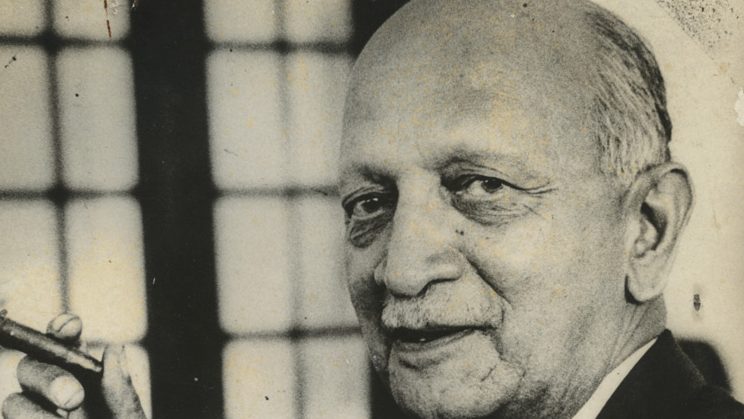
Field Marshal K.M. Cariappa was instrumental in keeping the Indian Army away from politics and attempted to forge an all-inclusive army.
New Delhi:
Popular discourse on Field Marshal Kodandera Madappa Cariappa is often limited to placing him as the first ‘Indian’ commander-in-chief of the Indian Army who took over from Roy Butcher on 15 January, 1949, and the second person to have been conferred the rank of Field Marshal in 1986 after former Army chief Sam Manekshaw.
There are, however, countless other factors that make him a towering figure in the history of Indian military, all of which is still relevant and important on his 120th birth anniversary, which falls today, 28 January.
Field Marshal Cariappa was not only instrumental in drawing a strong dividing line between the Indian Army and politics but he also helped shape the Army into a highly professional force in its formative stage.
He attempted to do away with caste, creed and other barriers in the Indian Army by raising the Brigade of The Guards — a mechanised infantry regiment of the Indian Army — in 1949. Recruitment to it was open to all regions, castes, creeds and all sections of society.
Military historian and national security analyst Mandeep Singh Bajwa says that such was his stature, that Field Marshal Cariappa interacted directly with then Prime Minister Jawaharlal Nehru, not allowing anyone in the bureaucracy or others in the corridors of power to take liberties with him.
“But the crucial fact is that he kept the Indian Army away from any kind of political influence, in contrast to the political nature of the Pakistani Army,” Bajwa told ThePrint. “When Ayub Khan was appointed the commander in chief of the Pakistan Army in 1951, the Pakistan Army clearly had a role in shaping the foreign and domestic policies of the state.”
The military coup that followed in 1958 only testified to the political nature of the Pakistan Army.
“He wanted the Indian Army to be an apolitical entity and that’s the reason he decided against inducting former INA personnel into the Army as they had become political soldiers,” Bajwa adds.
A distinguished career and a run-in with a junior
Field Marshal Cariappa had a distinguished career as the Army chief but before that he led Indian forces on the Western Front during the India-Pakistan War of 1947.
He was instrumental in recapturing Zojila, Drass and Kargil and created a linkup with Leh before the then Indian government decided to abide by an UN-brokered ceasefire on 1 January, 1949.
An illustrative anecdote about his character relates to the 1965 Indo-Pak war. Field Marshal Ayub Khan had served under Cariappa in the British Indian Army. In 1965, Cariappa’s son, Flt. Lt. K.C. “Nanda” Cariappa, was taken prisoner of war by Pakistan after his aircraft was shot down. Khan had offered to release him, but Cariappa made it clear to Khan that his son was not to be given any special treatment.
Bajwa says that the interest of the nation was always first with Cariappa. “He accepted pay and ration cuts for the forces because he felt that it would help the cause of nation building,” he says.
The officer from Coorg
Cariappa was born in Coorg and was educated at the Central High School at Madikeri and the Presidency College in the then Madras state.
He began his Army career under the British and was among those in the first batch of King’s Commissioned Indian Officers at the Daly Cadet College in Indore.
His remarkable career had several firsts.
He was the first Indian officer to undergo the course at the Staff College, Quetta, in 1933. He also saw action in Iraq, Syria, Iran and Burma and became the first Indian officer to be given command of a unit in 1942.
In 1947, Cariappa became the first Indian to be selected to undergo a training course at Imperial Defence College, Camberley, UK.
He also oversaw the division of the British Indian Army between India and Pakistan during Partition.
He was chosen over General S.M. Shrinagesh and Lt General Nathu Singh Rathore to head the Indian Army.
After retirement, he served as the Indian high commissioner to Australia and New Zealand.
He died in Bengaluru in 1993 at the age of 94.
The current army chief General Bipin Rawat has said that Field Marshal Cariappa deserves the Bharat Ratna, the country’s highest civilian award.
source: http://www.theprint.in / The Print / Home> The Print Profile / by Amrita Nayak Dutta / January 28th, 2019

